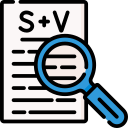Who are Advanced English Speakers?
Key Areas of Improvement

Clearing the Basics
Even advanced speakers occasionally make basic mistakes. A quick review of grammar and tenses can help identify and correct these errors.

Avoiding Slang
Using rich, yet simple vocabulary instead of slang is crucial in professional settings.

Effective Communication
The goal of language is to convey thoughts, instructions, and feelings clearly and simply.

Professional Writing and Speaking
Mastering these skills can lead to better job performance and career advancement.
Practical Tips for Advanced English Speakers

1. Review Grammar and Tenses
Even advanced speakers should revisit the basics occasionally.
Practical Tip: Review common grammar rules and tenses. Identify any recurrent mistakes you make and focus on correcting them. For example, if you find yourself frequently mixing up “has been” and “had been,” practice using these forms in sentences like, “She has been working here for five years,” versus “She had been working here for five years before she got promoted.”

2. Use Rich Vocabulary
Employ synonyms and rich vocabulary that are simple yet effective.
Practical Tip: Replace common words with their richer synonyms. For example, instead of saying “good,” use “excellent,” “superb,” or “outstanding.” When writing an email, instead of saying, “I think this project is good,” say, “I believe this project is outstanding and will greatly benefit our team.

Avoid Slang in Professional Settings
Slang can undermine your professionalism.
Practical Tip: Be mindful of avoiding slang in emails, presentations, and meetings. Instead of saying, “Let’s get this thing done,” say, “Let’s complete this task.” Use formal language that conveys professionalism and respect.

1. Effective Communication
Focus on making your language clear and easy to understand.
Practical Tip:When explaining complex ideas, break them down into simpler components. Use analogies or examples to make your points more relatable. For instance, if you need to explain a complicated process, you might say, “Think of this project like baking a cake. First, we need all the ingredients (data), then we mix them (analyze), and finally, we bake it (implement).

2. Writing Skills
Learn to write effective emails, reports, and other professional documents.
Practical Tip: Follow a clear structure in your writing: introduction, body, and conclusion. Use bullet points for clarity, and always proofread your documents for errors. For example, when writing a project update email, start with a brief introduction about the project, list the completed tasks using bullet points, and conclude with the next steps.

Public Speaking
Develop your public speaking skills to communicate confidently and effectively.
Practical Tip: Practice delivering speeches or presentations in front of a mirror or record yourself. Focus on your tone, pace, and body language. For example, if you have a presentation, practice saying, “Good morning everyone. Today, I will discuss our Q3 sales performance,” and observe your gestures and facial expressions in the mirror. Additionally, join groups like Toastmasters, which provide structured opportunities to practice public speaking and receive constructive feedback. At Lingua Nexus Institute, we also offer training in public speaking and body language to help you present more effectively.
Advanced Activities for Professional Development

1. Complex and Compound Sentences
Practice constructing complex and compound sentences to convey detailed ideas.
Practical Tip:Write about a topic using only simple sentences, then revise it by combining sentences to form complex and compound structures. For example, “I went to the meeting. It was very informative.” Can be revised to “I went to the meeting, which was very informative, and I learned a lot about our new marketing strategy.

2. Idioms and Phrases
Incorporate idioms and phrases to add sophistication to your language.
Practical Tip: Learn a new idiom or phrase each week and use it in your conversations and writing. For instance, use “hit the ground running” in a sentence like, “We need to hit the ground running with this new project to meet our deadlines.

3. Reading Between the Lines
Develop the skill of understanding implied meanings.
Practical Tip: Practice with texts that require inference. Read editorials, opinion pieces, or literature, and discuss the underlying messages with a peer or mentor. For example, read an article and then explain, “The author suggests that while the economy is improving, there are still significant challenges ahead.

4. Skills of Communication
Enhance your overall communication skills, including non-verbal cues.
Practical Tip:Pay attention to your body language, eye contact, and gestures while speaking. Practice active listening by summarizing what the other person says before responding. For instance, in a meeting, you might say, “I understand that your main concern is the budget. Let’s discuss how we can address that.
Writing and Presentation Skills

1. Email Writing
Learn to write clear and professional emails.
Practical Tip:Follow the standard email format: greeting, body, closing, and signature. Be concise and to the point. Proofread for spelling and grammar errors before sending. For example, “Dear Mr. Smith, I am writing to inform you about the upcoming meeting scheduled for next Monday. Please find the agenda attached. Best regards, Jane Doe.

2. Presentations
Create impactful presentations that engage your audience.
Practical Tip: Use visual aids like slides to highlight key points. Practice your delivery to maintain eye contact and engage with your audience. Keep slides uncluttered with concise bullet points. For example, in a presentation about sales performance, your slide might include bullet points like, “Q3 Sales Increase: 15%,” “New Customer Acquisitions: 200,” and “Top Performing Regions.
Mirror Practice and Self-Review

1. Mirror Practice
Practicing in front of a mirror helps improve pronunciation and fluency. It allows you to observe your facial expressions and body language.
Practical Tip:Stand in front of a mirror and speak on a topic for 2-3 minutes. Repeat the sentences until you can say them smoothly and confidently. Pay attention to your pronunciation and try to eliminate filler sounds like “um” and “ah.”

2. Recording and Self-Review
Use your mobile phone to record your speaking practice. Listening to yourself helps identify areas for improvement.
Practical Tip: Choose a topic, record yourself speaking for 2-3 minutes, and then listen to the recording. Critically analyze your speech for pronunciation, grammar, and fluency. Make notes on areas to improve, and then re-record the same topic. Repeat this process to track your progress.
Conclusion
Your teacher and coach at Lingua Nexus Institute are always here to provide the guidance you need. Feel free to reach out if you have any questions or need further support. Happy learning!



